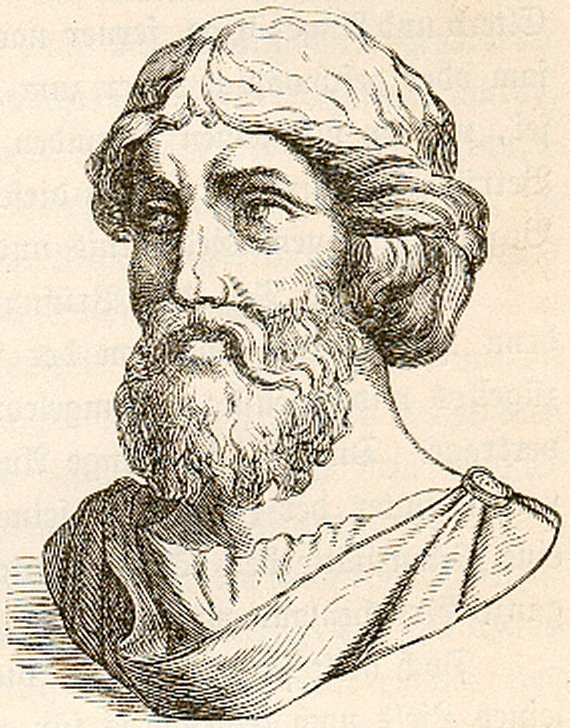
|
|
|
|

|
This famous saying from Pythagoras gives us the English maxim "Well begun is half done." Literally, Pythagoras said, "The beginning is half of everything," which reflects the philosopher's outlook on life. Pythagoras approached all problems with full intensity, believing that the harder he worked, the better the outcome. Pythagoras not only advanced the world of mathematics in his day, but also merged several different philosophies to create his own, Pythagoreanism, from which we can better understand the man and his beliefs. Pythagoras, who is thought to have lived in the sixth century BCE, can properly be called the Greek father of mathematics, since his discoveries led to the later advancements Greek mathematicians would make. After founding a school and a secret society, Pythagoras and his followers set out to study math for the sake of math, with no goal in mind but to learn more. For this reason, we cannot know for sure which discoveries were Pythagoras' own, since his own work merged with the work of his followers. Pythagoras' two most well known discoveries are the Pythagorean theorem, which allows us to calculate the hypotenuse of a right triangle, and the formula expressing the relationship between the sides and the diagonal of a square. All ancient records of Pythagoras are found in works by other
authors, so our knowledge of this great thinker is entirely based
upon secondary sources. This saying is attributed to Pythagoras,
though we cannot be sure of its origin. Although modern scholars
cannot be certain of Pythagoras' advances within the world of
mathematics, it is certain that his saying reflected his life:
the beginning of modern mathematics, which started with Pythagoras,
set the events in motion which led to math as we know it. |
|
|
|
|
|
|